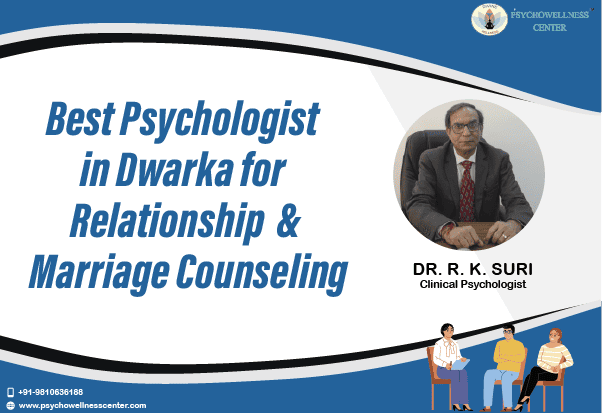Overcoming Social Anxiety Strategies for Children

The fear of making friends or interacting with them is only one aspect of social anxiety disorder (social phobia). An intense fear of being taken to task or judged by others in social situations is actually what distinguishes it from other forms of anxiety.
Children who suffer from Social anxiety disorder feel extremely anxious about a variety of triggers, such as reading aloud, speaking in front of others, being judged by others, offending others, feeling embarrassed, and talking to strangers. Children with social anxiety disorder are susceptible to social circumstances such as school, teams, play dates, enrichment sessions, and family gatherings.
Children who suffer from social anxiety disorder may experience significant distress, and it can have a detrimental impact on their academic success, social interactions, Self-Esteem and other areas of functioning. Children with social anxiety disorder are likely to shy away from group activities with their peers, such as sports, out of concern for embarrassment or unfavorable judgments.
By comprehending the condition's causes and educating their kids on how to manage its symptoms, parents can assist kids with social anxiety disorder. Going to school, interacting with peers, placing an order at a restaurant, and using the restroom in public can all be challenging when you suffer from social anxiety. Because of this, parents should become familiar with the obvious signs of social anxiety and, if necessary, seek the appropriate treatment.
What are the symptoms of social anxiety disorder?
Physical and behavioral symptoms are both present in those who have social anxiety disorder. Trembling, sweating, motion sickness, and speech stammering are some of the physical signs. As a result of their perception that others have noticed, these symptoms cause the person to feel more self-conscious, which in turn causes them to feel deeply humiliated and embarrassed.
These are some additional signs of social anxiety disorder:
The individual believes that his or her actions or anxiety symptoms will be perceived negatively.
Social situations invariably cause anxiety or fear (in children this can manifest as tantrums, clinging, crying, freezing up, or failure to speak)
Avoiding or enduring social situations while experiencing strong feelings of fear and anxiety
The anxiety or fear is excessive compared to the actual threat.
The fear, worry, and avoidance persist for at least six months.
The ability to function in social, occupational (school), or other domains is clinically significant distress
Fear of social events that may occur weeks in advance
A tendency to cling to people you know too much
When anxious-inducing social situations arise, tantrums may result.
The act of blaming others for alleged social shortcomings
Physical symptoms include flushing, a racing heart, trembling, nausea, and difficulty speaking.
What causes social anxiety disorder?
A Social anxiety disorder may be brought on by a number of factors, including:
- Family background: It is generally accepted that anxiety disorders run in families. It's unclear, though, whether this is just a matter of genetics or whether the child has learned this particular behaviour.
- Past events: SAD may develop as a result of early childhood experiences in which a child was the target of bullying or endured some other type of humiliation.
- Characteristics from early life: Teenagers who are overly clingy or shy may face danger.
Getting help for a social anxiety disorder
Even though social anxiety disorder is a treatable condition, it can be extremely distressing. Once they receive the right care and are taught coping mechanisms, many people are able to handle social situations. Medication, psychotherapy, or a combination of the two may be used to treat social anxiety disorder, as they are for other anxiety disorders.
For the treatment of social anxiety disorder, cognitive behavioral therapy (CBT) has been found to be very effective.
Taking care of someone who suffers from social anxiety disorder
You may want to talk to someone you know about the disorder and recommend that they get professional help if you have observed any of the above-mentioned symptoms in them. Offer to go with them when they go to the doctor. To better comprehend what the person is going through, educate yourself on the disorder. Be understanding and encouraging, and if the treatment is taking longer than expected, keep encouraging the person to keep going.
Managing social anxiety disorder
In order to learn how to deal with Social anxiety disorder, you should seek specialist advice as soon as you notice any signs of social phobia. If the thought makes you uncomfortable, you might want to talk to a trusted friend or relative and ask them to go with you when you consult a Online Psychologists. Making healthy lifestyle changes will always help you feel better. Make sure you have a good routine, get enough sleep, and exercise. You could also join a support group because meeting people going through the same things aids in the healing process.
Consider contacting Best psychologist delhi, for professional assistance if you're concerned about your child's anxiety and believe it's preventing them from enjoying life. There are many Child psychologist who can provide your child with excellent care. You might want to talk to a Counseling psychologist or child specialist about the disorder if you have seen any of the above- mentioned symptoms in someone you know. The most well-known and popular Therapists in delhi platform for kids is, in my opinion, TalktoAngel. To better comprehend what the person is going through, educate yourself on the disorder. Be understanding and encouraging, and if the treatment is taking longer than expected, keep encouraging the person to keep going.
Make an appointment for mental health therapy with the renowned and knowledgeable psychologists at the Psychowellness Centre. The building is close to Delhi NCR, Janakpuri, Dwarka, Faridabad, and NOIDA.
Contribution: Dr (Prof) R K Suri, Clinical Psychologist, life coach & mentor TalktoAngel & Ms. Swati Yadav
Related Stories

Affirmations And Mental Health



SHARE